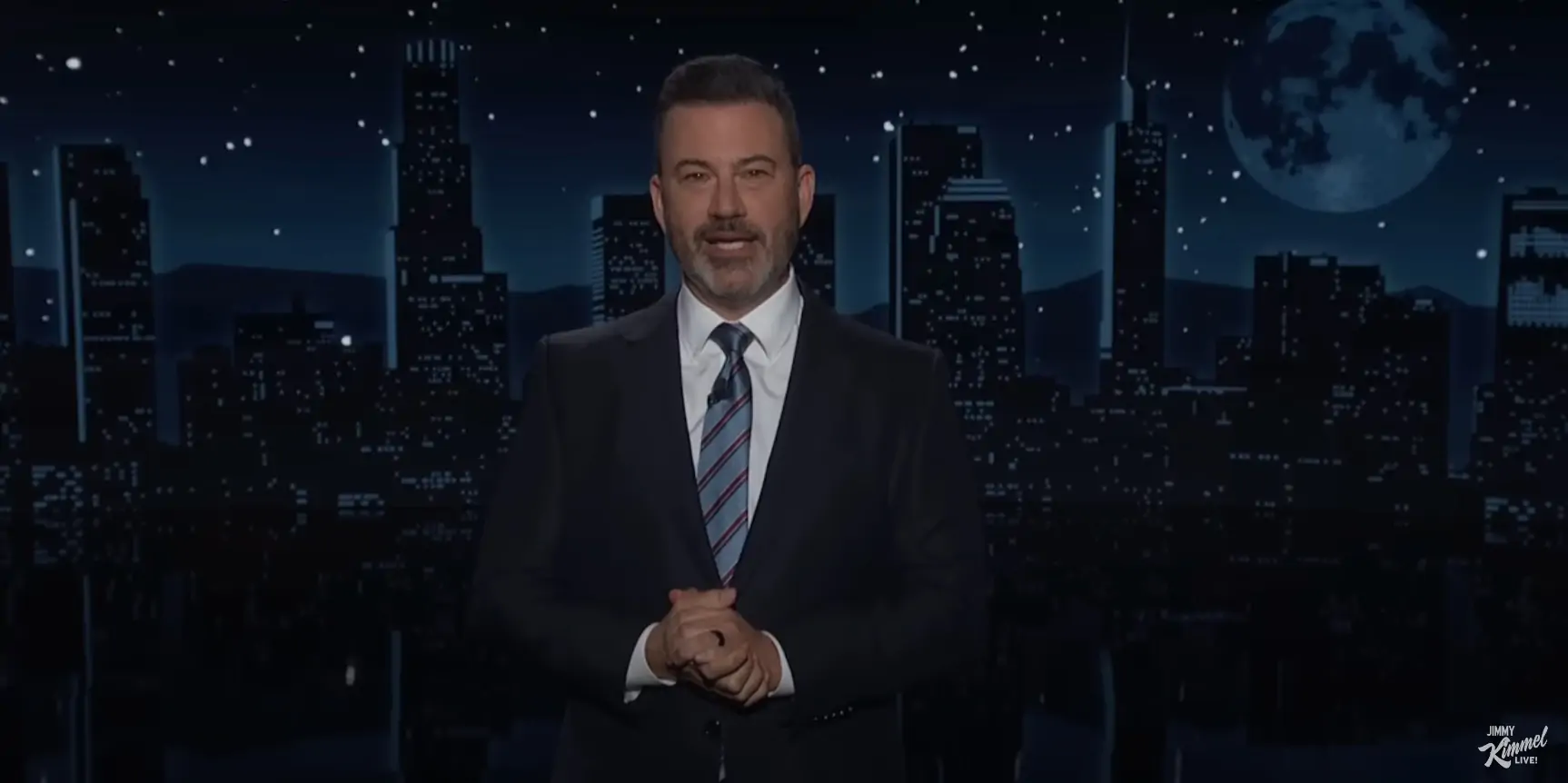
Jimmy Kimmel, known for his political activism during late-night shows, has been particularly vocal lately. Following CBS’s announcement that Stephen Colbert’s Late Show will conclude in May 2026, Kimmel embarked on a wide-ranging media tour. During this time, he criticized Donald Trump, expressed frustration towards conservatives for lacking outrage, and even touted the current state of late-night television as robust, drawing comparisons to the golden age of Johnny Carson’s era.
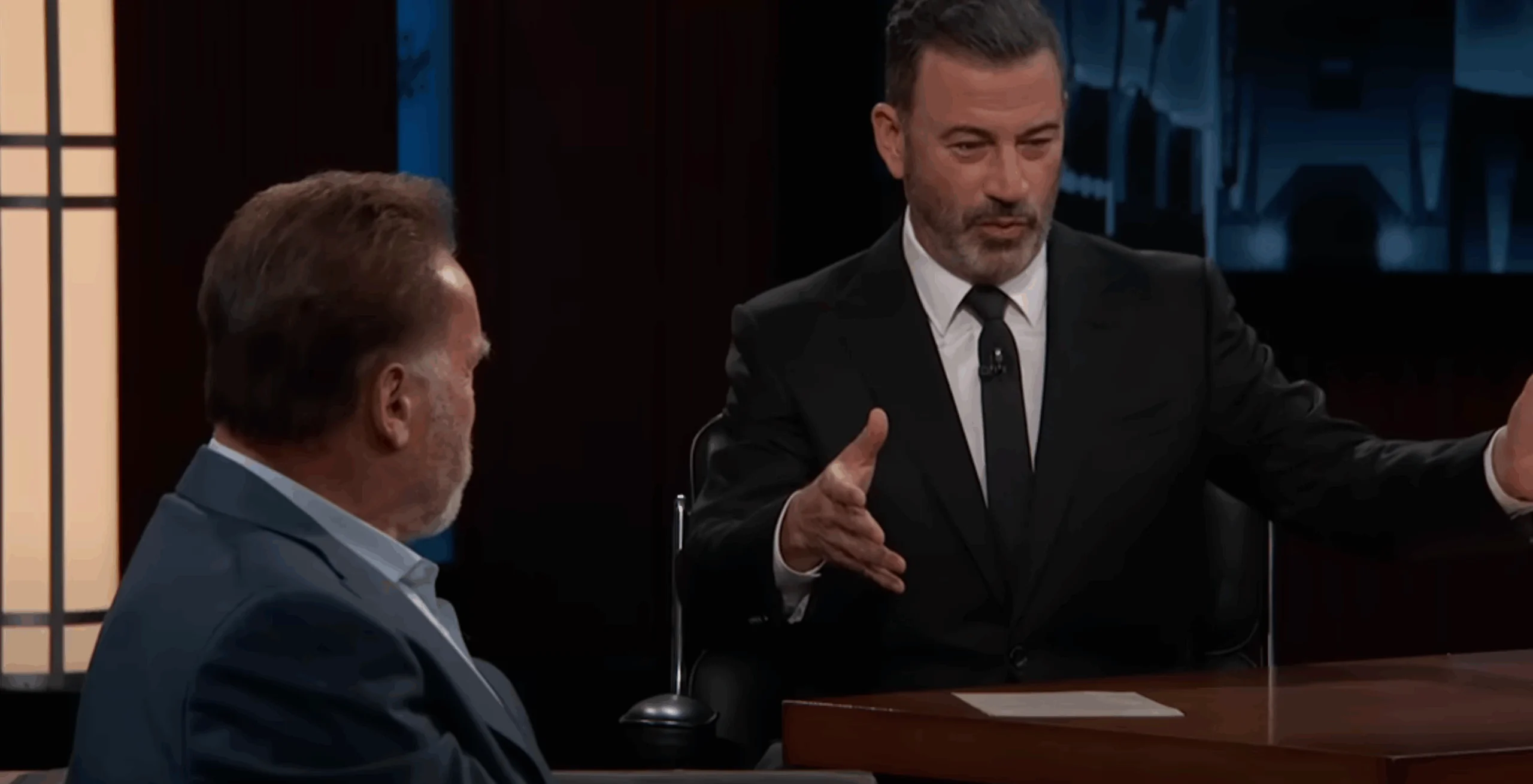
The argument, in simpler terms, suggests that this defense uncovers more about the disconnect late-night programming has experienced rather than Colbert’s termination itself.
Kimmel Scolds Conservatives
In his latest interviews, Kimmel disputed claims that Stephen Colbert’s program was incurring annual losses of approximately $40 million. He deemed the number as illogical and suggested that critics might not fully grasp how television programs earn profits. Kimmel emphasized that affiliate fees ensure Colbert’s show remains profitable, regardless of what financial analysts may argue.

Later, he shifted his focus to political matters, asserting that Trump was ultimately accountable for the cancellation and criticizing conservatives for not showing adequate anger regarding this event.
We were all stunned and let down to see such events occurring in America, and it’s disheartening that not enough voices on the right are speaking out against it. As for silencing comedians, commentators, or any similar figures, I must say, if Joe Biden had used his influence to take Sean Hannity off the air, I wouldn’t back him up in that case. Instead, I would support Sean Hannity, as I believe one of our country’s core values is freedom of speech. However, it seems people don’t value this principle unless they agree with its application.
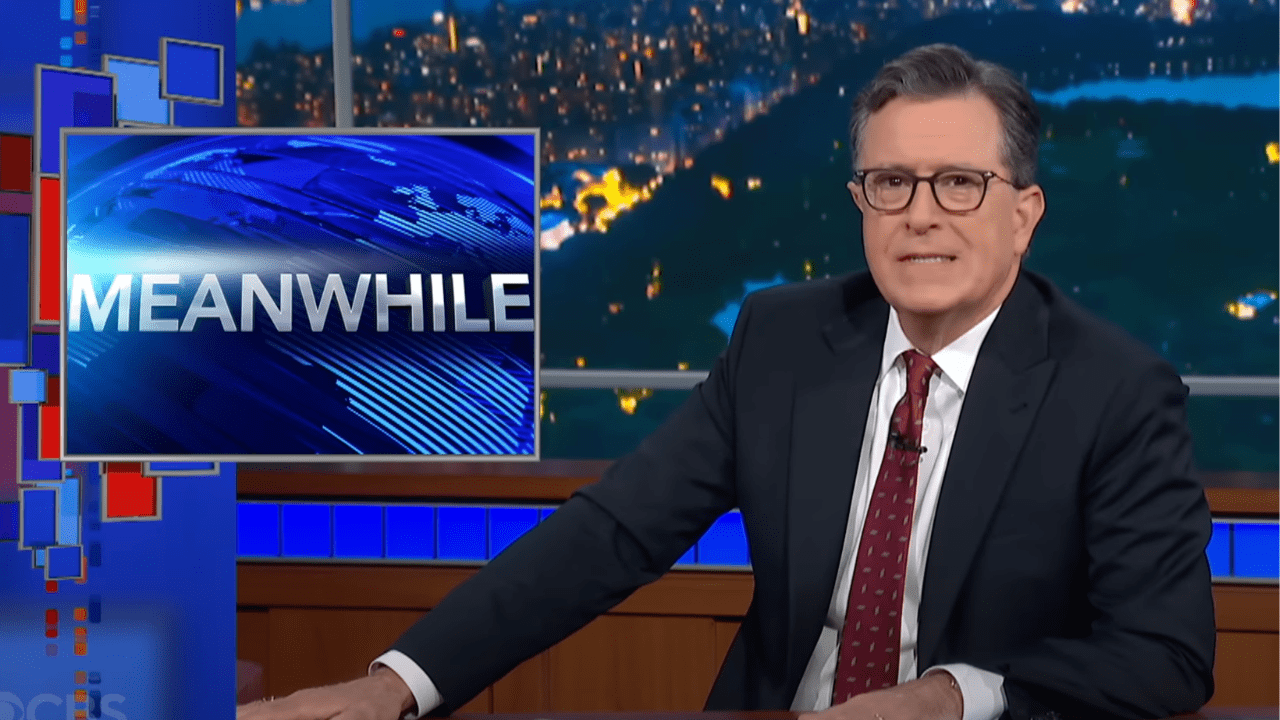
Rather than siding with him, conservatives have countered by highlighting the increasing expenses for Colbert’s production and his poor ratings among viewers as the actual causes of the issue.
In simpler terms, it appears to them that Kimmel’s constant focus on Trump as a bogeyman, while ignoring Colbert’s significant losses in late-night television, is just another example of Hollywood trying to divert attention – a way to avoid confronting the financial and cultural issues that late-night programming is currently facing.
The Billboard Defense
Jimmy Kimmel didn’t merely support Colbert through spoken words; he demonstrated his allegiance by purchasing a billboard in Los Angeles to advocate for Colbert’s Emmy nomination, rather than his own. He presented this act as standing in solidarity with a friend unjustly muted.
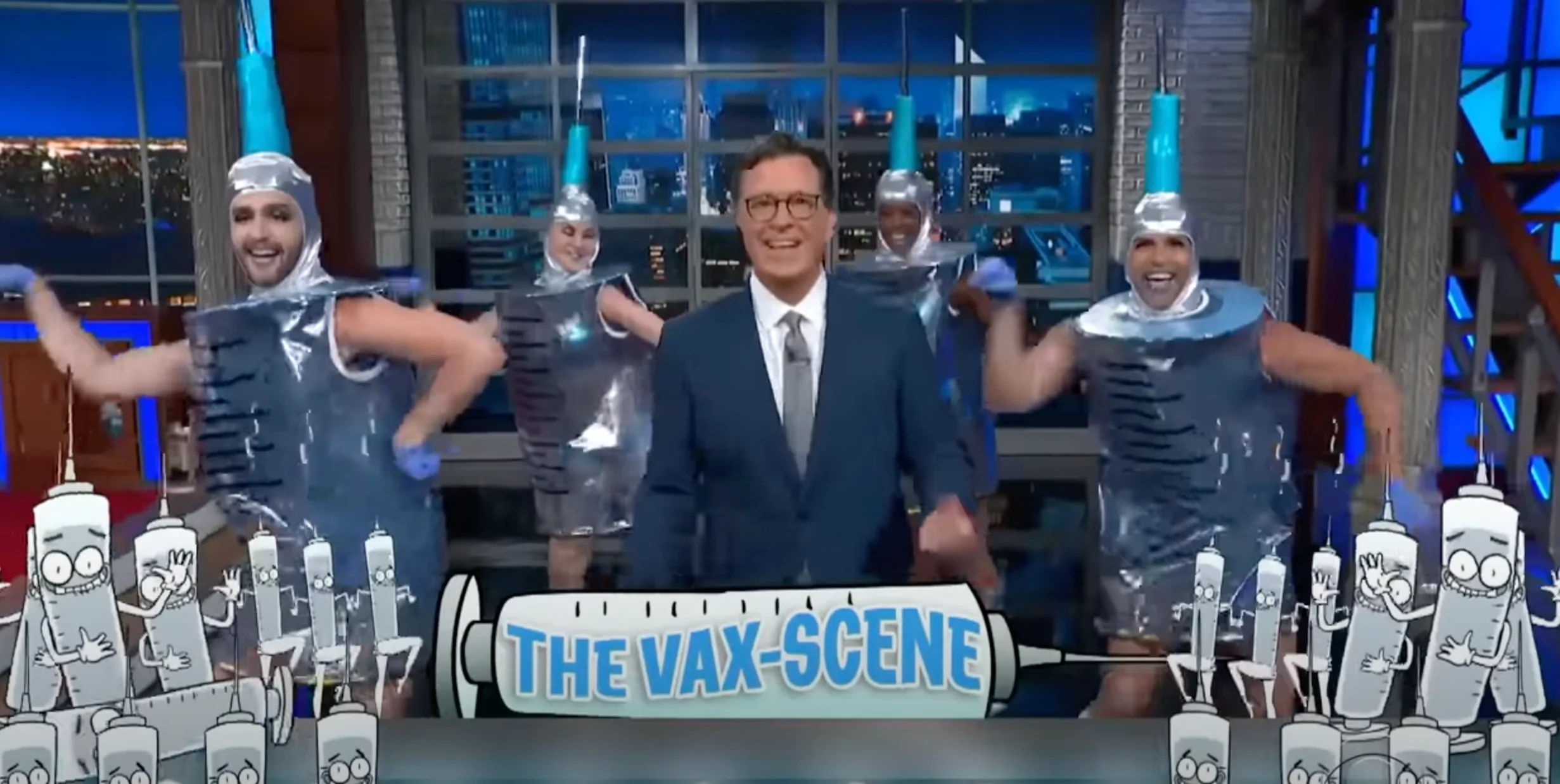
To those outside the circle, it only served to emphasize the notion that Tinseltown’s high society is huddling together. Rather than tackling the root causes for the decline in nighttime viewership, Kimmel instead presented token gestures and self-righteous grandstanding.
The Financial Reality CBS Couldn’t Ignore
Here’s what CBS executives were really grappling with:
- The Late Show cost well over $100 million a year to produce.
- Colbert’s estimated $15–20 million salary alone accounted for a hefty slice of those costs.
- Despite strong overall viewership, Colbert lagged in the 18–49 demo, the lifeblood of advertising.
- Industry-wide, late-night ad revenue collapsed from $439 million in 2018 to just $220 million in 2024.
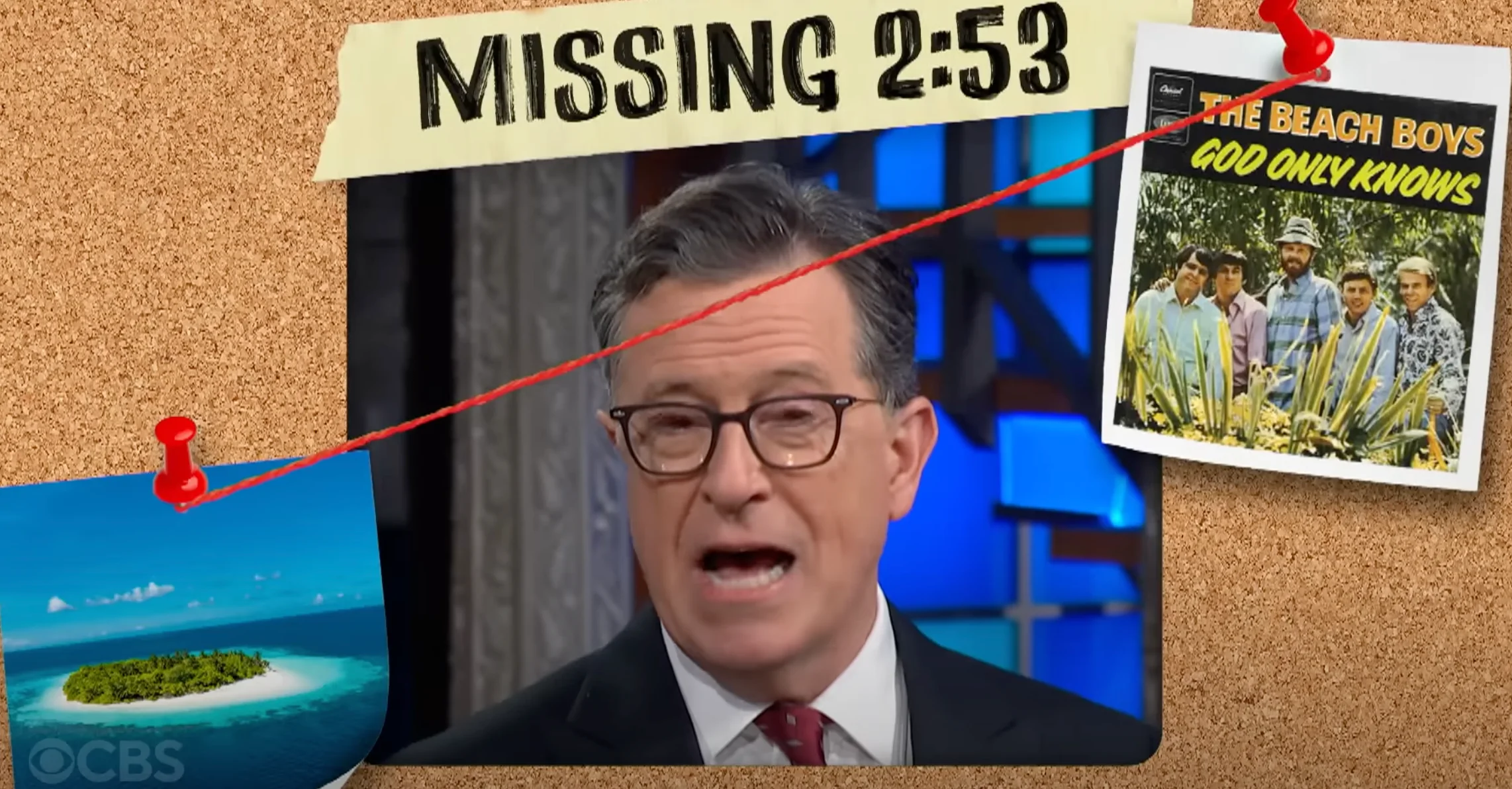
Essentially, prestige didn’t cover the expenses. Profitable shows aren’t terminated; instead, it’s the money-losing ones that get cancelled. Contrary to popular belief, The Colbert Show was not generating enough revenue.
Kimmel’s Self-Own
In trying to dismiss these financial reports, Kimmel brought up his own past ratings.
For the initial ten years that the show ran, it was often asserted that we weren’t earning much… Despite this, our viewership on ABC was five times higher than what it is currently.
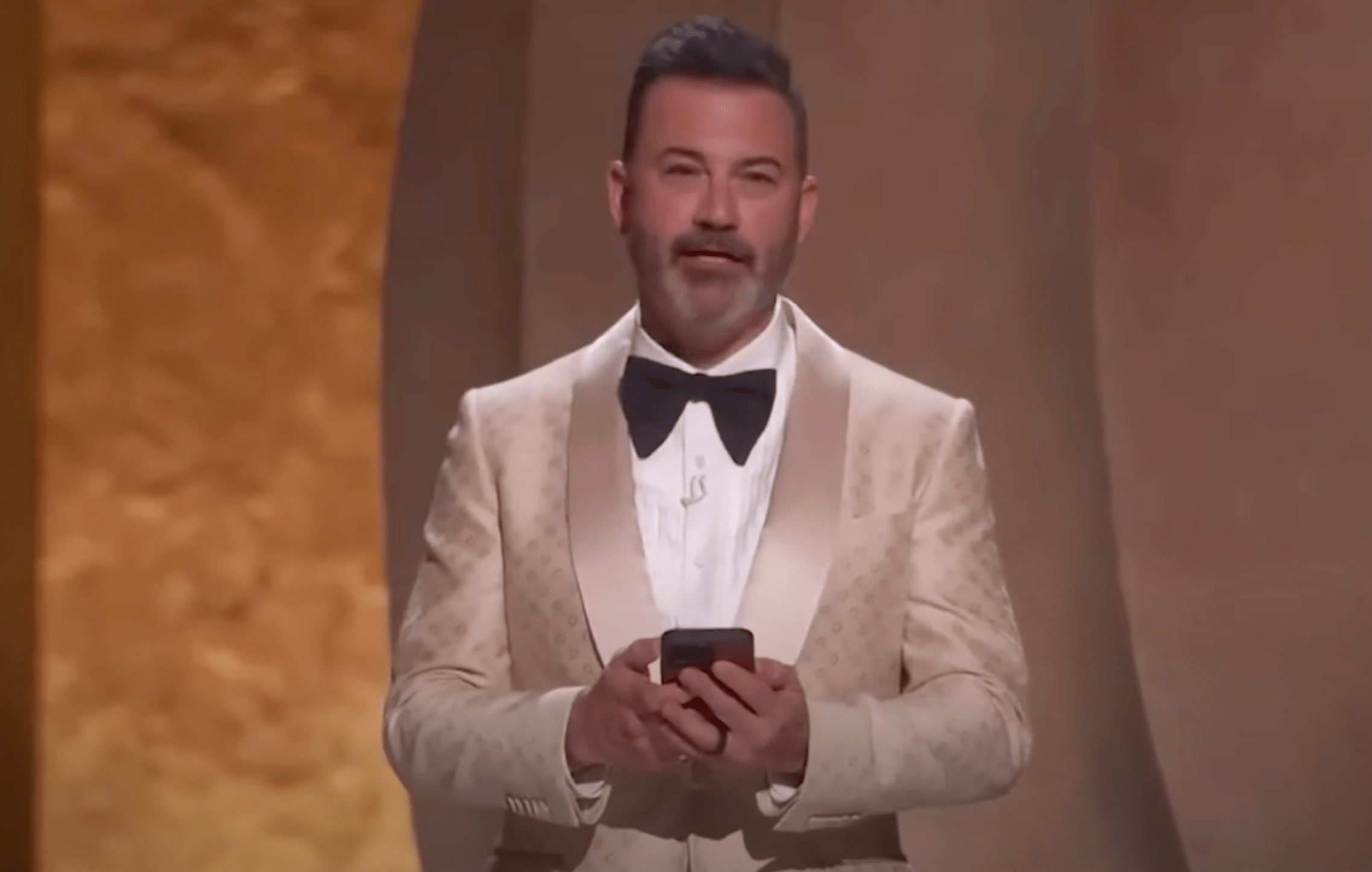
Kimmel’s intention was to show that networks alter profitability, but instead, it appeared as if he unintentionally admitted to losing a significant number of viewers throughout his career.
ratings do not necessarily indicate a show’s financial success. Networks focus on advertising revenue and specific demographics, rather than just overall viewership.
Instead of demonstrating that Colbert was unjustly treated, Jimmy Kimmel emphasized the instability of financial matters in late-night shows for quite some time.
The Carson Comparison
Should Kimmel’s self-deprecating joke not be enough, he further attempted to assert that the viewership of late-night shows is currently at an all-time high – even surpassing the numbers achieved by Johnny Carson in his era.
It’s astounding to see more individuals tuning into late-night TV than ever, a group I myself am part of, reminiscing the days of the legendary Johnny Carson,” I commented.
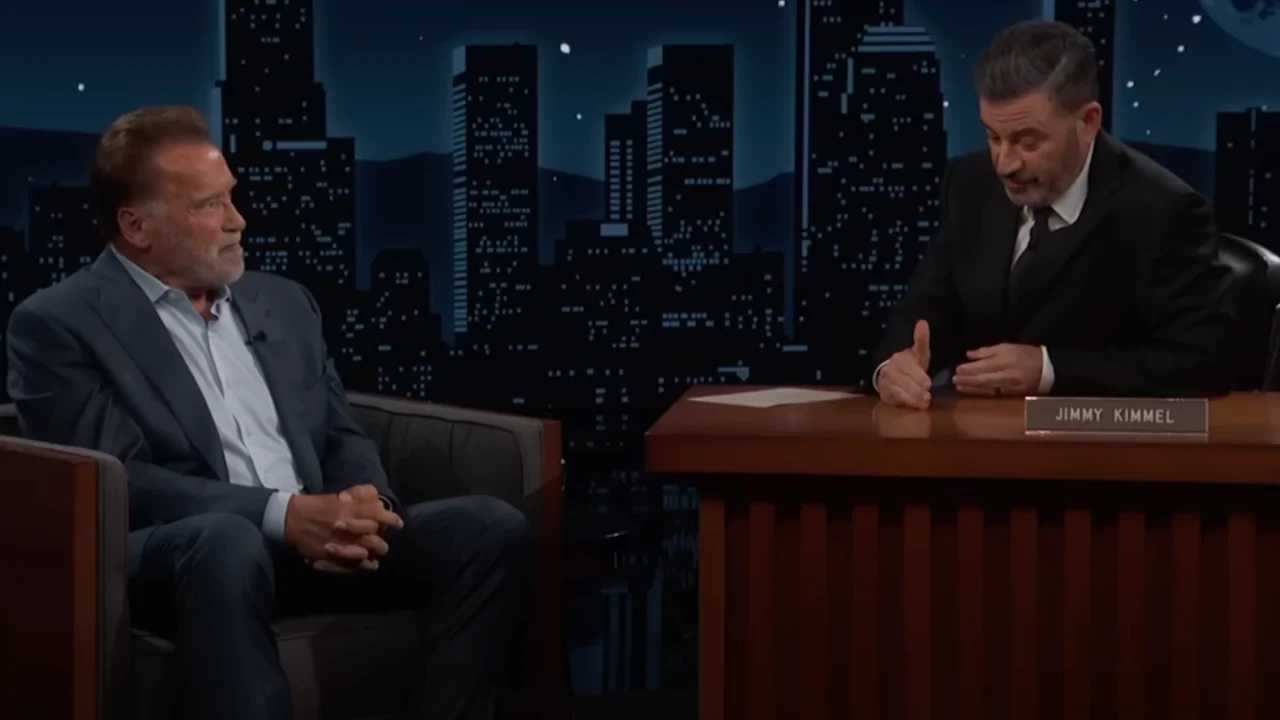
The issue here is that the assertion seems questionable. At his peak, Carson’s show typically attracted around 9 million viewers each night. Moreover, the shows leading up to it consistently garnered viewership ranging from 30 to 40 million people.
In contrast to today’s late-night show hosts, who typically attract less than 2 million live viewers, even when accounting for YouTube clips and streaming, their viewership doesn’t come close to matching the cultural influence that was seen during Johnny Carson’s time.
Admirably stating something different from reality, Kimmel has showcased the lengths some late-night supporters will go to manipulate statistics. While it’s true that digital clips can be shared easily, the monetary returns are less significant, ad interest is comparatively lower, and the cultural influence barely scratches the surface of what Carson once commanded. To continue maintaining such a stance stretches one’s credibility dangerously close to its snapping point.
Conservatives Aren’t Buying It
For conservatives, Jimmy Kimmel’s efforts to change the storyline simply reinforce their existing views: It was not Trump who caused Colbert’s cancellation, but rather mathematical factors. Moreover, Kimmel’s evolving justifications – from affiliate fees concerns, to personal ratings examples, to comparisons with Carson – may appear increasingly frantic to some observers.
It’s not surprising that Trump and conservatives aren’t coming to Colbert’s aid after nearly a decade of him criticizing them every night, given that he managed to antagonize half the population, lose touch with younger audiences, and become too costly to keep around.
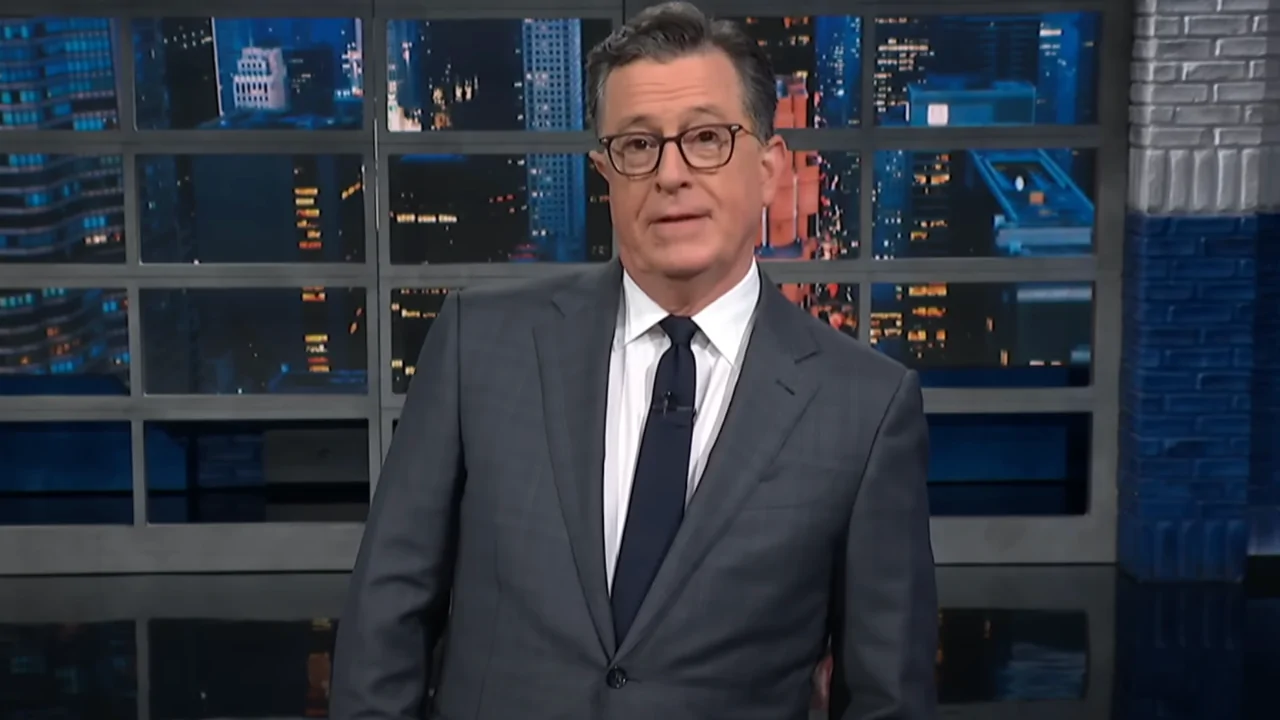
As a devoted fan of the nightly talk show scene, I can’t help but notice that something seems amiss these days. Jimmy Kimmel’s observations ring true for me too: the once vibrant world of late-night television is now grappling with some serious challenges. Monologues that used to be a source of laughter and reflection have turned into partisan sermons, losing their luster in the process. The cultural impact these shows used to have feels diminished, and it’s evident that younger generations have found new platforms on YouTube, TikTok, and streaming services that better resonate with them.
Within the realm of Hollywood, the murmurs are becoming increasingly audible. Conan O’Brien has sounded an alarm about existential threats to late-night shows. Jeff Shell from Paramount admitted that the financial structure of these programs is flawed. However, Jimmy Kimmel maintains a contrasting view, asserting that the genre is thriving – a stance that seems to defy both numerical data and the everyday experience within the medium itself.
Final Thoughts
As a fellow movie buff, I’d like to share my take on the recent events regarding Stephen Colbert’s show cancellation. Some folks are claiming that Jimmy Kimmel is trying to spin this into a story about Donald Trump pulling the strings behind the scenes. The idea is to get conservatives all riled up and create a stir. But it doesn’t end there; he also wants the media to buy into his narrative, stating that late-night television isn’t on its last legs. Let’s see how this unfolds!
However, the figures tell a different story. Despite being one of the costliest shows on network TV, “The Late Show” was spending excessively and witnessing a decline in its appeal to advertisers due to its aging viewer base. Kimmel’s personal narratives, along with the reference to Carson, actually weakened his argument instead.

Instead of criticizing conservatives or altering historical accounts, Kimmel could instead inquire about the reasons for audience disengagement. Until late-night shows address these underlying causes, continued criticism of Trump won’t prevent more programs from facing cancellation, similar to Colbert.
Read More
- Mobile Legends: Bang Bang (MLBB) Sora Guide: Best Build, Emblem and Gameplay Tips
- Clash Royale Best Boss Bandit Champion decks
- Best Hero Card Decks in Clash Royale
- All Brawl Stars Brawliday Rewards For 2025
- Best Arena 9 Decks in Clast Royale
- Brawl Stars December 2025 Brawl Talk: Two New Brawlers, Buffie, Vault, New Skins, Game Modes, and more
- Vampire’s Fall 2 redeem codes and how to use them (June 2025)
- Clash of Clans Meltdown Mayhem December 2025 Event: Overview, Rewards, and more
- Clash Royale Witch Evolution best decks guide
- Clash Royale December 2025: Events, Challenges, Tournaments, and Rewards
2025-08-19 14:59